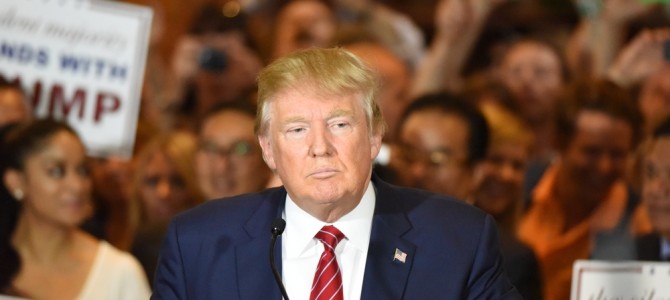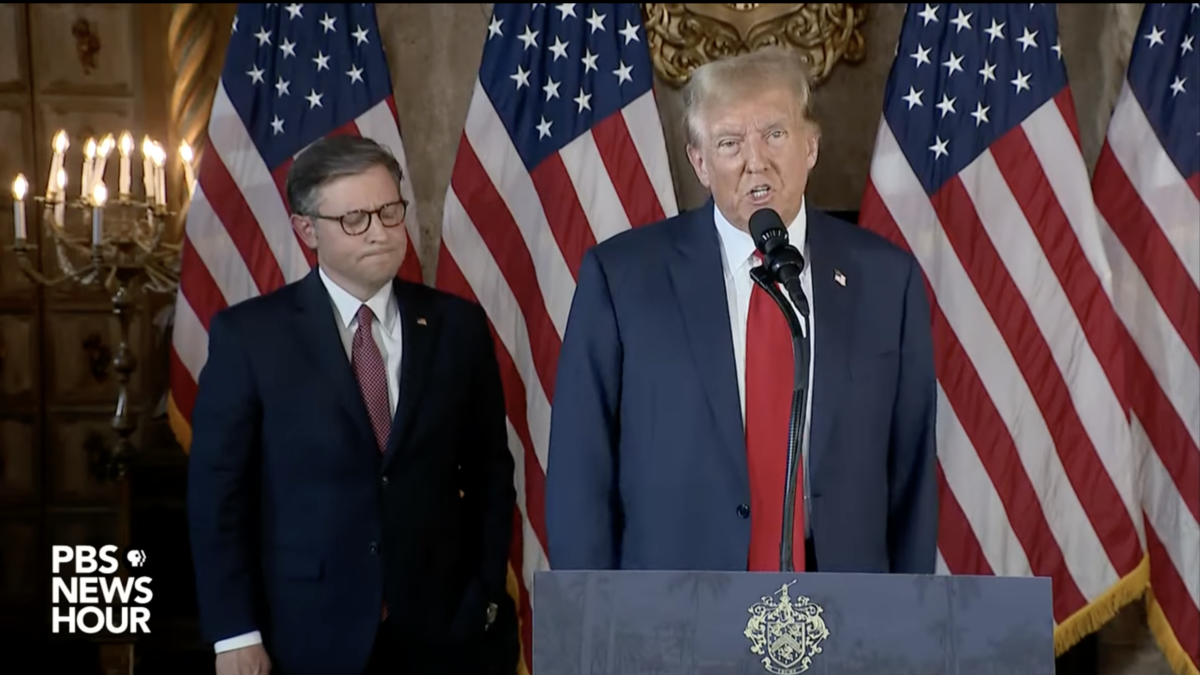
I never thought reality TV was going to work out well. If a show couldn’t afford a good script and good actors, why should anyone watch it? But millions did, and here we are, wondering what Donald Trump’s campaign, more improvised than his television show, tells us about the state of American politics.
It’s been good for humorists, that’s for sure. Garry Trudeau’s Doonesbury, a comic strip that hasn’t been funny in two decades, flickered to life the other day. Asked why he thought he was qualified to be leader of the free world, the cartoon Trump replied: “Three words: Supermodel First Lady!” The Onion ran a faux editorial by Trump:
I’ve already alienated America’s largest immigrant population…and publicly insulted a national hero’s military service, all while not offering a single viable policy idea. But none of that matters at all….Admit it: You people want to see just how far this goes, don’t you?
We are along for the ride, partly to see the crack-up at the end, but mostly to see the establishment gasp along the way. Trump is a populist, but of a peculiar sort. William Jennings Bryan didn’t go around calling himself “The William.” The Donald talks (strictly in this order) about himself, the idiocy of the American political elite, and the good qualities of the American people, who come in a distant third.
Even his anti-elitism is strangely personal. It’s not a class hatred; it consists of a big, brash, rich (verrry rich) New Yorker calling out Jeb Bush, President Obama, and Megyn Kelly by name. It’s an invitation to a rumble, not to a revolution. The rumble is all songs and no switchblades, of course, but that doesn’t make it less fascinating.
Trump’s populism exploits three frustrations with modern government or, more precisely, with the people who run it—that they’re illegitimate, incompetent, and insufferable. The first lay behind Trump’s dogged pursuit of President Obama’s long-form birth certificate, trying to prove that he was born not in Hawaii but somewhere else, somewhere that would allegedly disqualify him from being president, or at least prove him a liar.
Not only illusory, this gambit distracted from genuine worries about the illegitimacy of a government that concentrates more and more power in a distant elite, with less and less accountability to the public.
Dear Elites: ‘You’re Fired!’
Since announcing his presidential candidacy, Trump talks less like a birther and more like a turnaround artist. He excoriates the incompetence of Obama, Hillary Clinton, John Kerry, Jeb, George W. Bush, and other stupid, moronic, idiotic, and low-I.Q. holders of high office past and present. Losers!
It isn’t often that populism and demands for high job performance go hand in hand, and we should be grateful. Nativism is not his thing. His complaint is that the rulers of China, Mexico, Russia, ISIS, and Iran, among others, are smarter and bolder than our own. When he promises to build a wall along our southern border, he emphasizes it is to keep criminals, drug addicts, and perverts out, not the good Mexicans who want to work for him.
In 1992, Ross Perot offered competence, too, but more as a set of technical skills: he knew how to look under the hood and “fix it.” Trump knows how “to get things done.” He is a deal-maker, a hard bargainer, a guy you are glad is on your side of the table—and a hard boss, too. How we long to hear him say to the elites of both parties: “You’re fired!”
Reality TV Meets Actual Reality
There are other things his supporters and onlookers like to hear him say. In fact, a huge (make that yuuuuge) part of his appeal comes from his forthrightness in a P.C. age. He says things, never eloquently or without bluster, and in a surprisingly limited vocabulary, but nonetheless things that few others would have the audacity to say in private, much less in a presidential debate. To the insufferable smugness of the elites he offers the contrast of a populist breath of fresh air, and of something more valuable: a reminder of what America used to be like when it was a freer country, before political correctness did away with candor.
When he denounces the best and brightest as dumb and dumber, that stings. And we cheer. All the more so because he refuses to apologize the way everyone hypocritically does these days, to get the P.C. police to call off the dogs.
If he really wants to be president, which isn’t clear yet, he faces an obstacle that he may not have foreseen. Very few businessmen have made it to the U.S. presidency. Although Americans often admire successful business leaders, they often don’t see them as having the right mix of talents and virtues for the nation’s top job. Even reality TV has to face reality, eventually.
This article appears in the Summer 2015 issue of the Claremont Review of Books, and is reprinted with permission.









